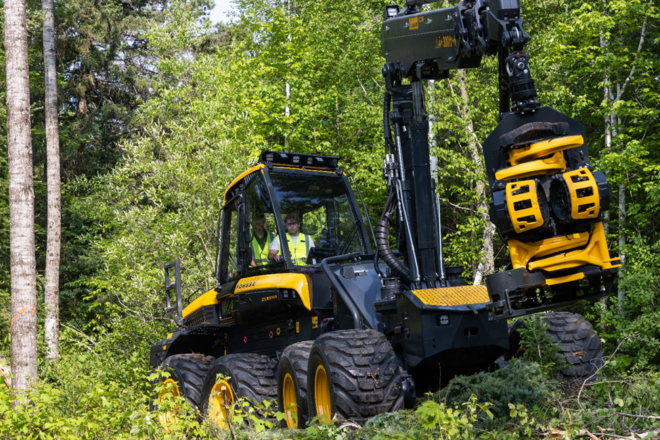New SFI Forest Certification Standards Advance Key Global Sustainability and Conservation Priorities

The Sustainable Forestry Initiative (SFI) has developed new standards to support SFI’s leadership in offering solutions to some of the world’s most pressing sustainability challenges. SFI certification is a powerful tool to ensure healthy forests, mitigate climate impacts, resiliency to fire threats, training for loggers, and support for diverse communities.
This combination of SFI’s standards and conservation work helps provide nature-based solutions to global challenges such as climate change while contributing to biodiversity. SFI’s scale, represented by the 370 million certified acres across North America along with our diverse and growing network, means our work will continue to enhance sustainable forest management practices and their ability to provide transformational solutions.
One highlight of the new standards is the SFI Climate Smart Forestry Objective. Forests play a central role in the carbon cycle, and with proper management, can be one of the most effective nature-based solutions to the climate crisis. Starting in January 2022, SFI‑certified organizations will be required to ensure forest management activities address climate change adaptation and mitigation measures.
Another important highlight is the SFI Fire Resilience and Awareness Objective, which requires SFI‑certified organizations to limit susceptibility of forests to undesirable impacts of wildfire and to raise community awareness of fire benefits, risks, and minimization measures.
Thanks to the collaborative process that led to their development, I believe we’ll see important progress on key issues like mitigating climate change, supporting wildlife, cleaning our water, and contributing to the economic recovery process.
The updated SFI standards build on knowledge gained through the SFI Conservation Impact Project, which is focused on measuring the role of the forestland certified to the SFI Forest Management Standard and millions of additional hectares impacted by the SFI Fiber Sourcing Standard in addressing climate change, biodiversity, and water purification.
The Conservation Impact Project helps facilitate continual improvement of the SFI standards, gives SFI‑certified organizations the opportunity to better understand their contributions to conservation, provides conservationists deeper insights into the value of sustainable forest management, and helps consumers make better choices for the planet. A recently completed study of SFI‑certified forestlands in the United States indicates that these forests harbor more than 20 billion tons of carbon and capture about 235 million tons of carbon each year, underscoring their value in fighting climate change. This carbon capture is equal to the emissions from over 170 million cars a year. (Visit the SFI-NCASI Carbon Tool)
I encourage you to visit forests.org to learn more about the SFI 2022 Standards and Rules.


